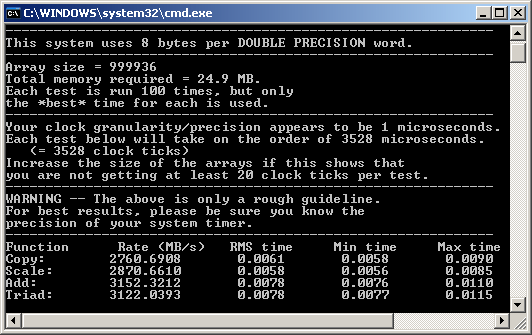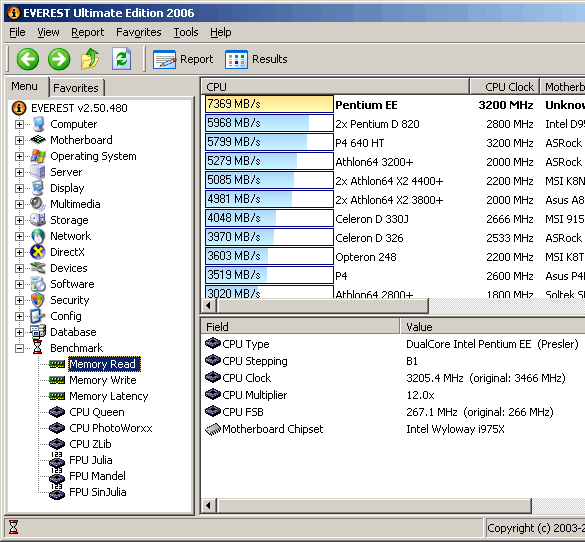In Search of True DDR2 Bleeding Edge Memory
Wstream And Everest Benchmarks
A well-qualified test for memory modules isn't as trivial to set up as is the case for most other PC components. We used the Wstream and Everest benchmark programs, because their test results are extremely stable, and because they deliver a high level of confidence when it comes to comparing modules. The Wstream program supports multiple processors, so that the front side bus between the CPU and the memory interface may be loaded more effectively.
Wstream is only available in source code form; we tailored that code to our requirements, then compiled it in C++.
When it comes to benchmark results, the Everest software varies so little as to be unnoticeable, and helps measure memory latency.
Everest Ultimate Edition 2006, Version 2.50.480, produces extremely stable and easily-reproducible results.
For a long time now, THG labs has worked with multiple powerful, accurate measurement tools to testing memory, so as to be able to verify and cross-check those results. It's a fact that there is no normalized or official test for memory throughput, which means everything depends on the algorithms implemented in whatever testing software is used. Thus, for example, you'll see that Wstream reports write access speeds of 3.7 GB/sec for a DDR2-667 module, while Everest reports 2.8 GB/sec for the same module, because of a different algorithm.
We decided to forgo use of the popular "SiSoft Sandra 2006" for this test for two reasons: First, the "Service Pack 3" version of that program won't run on a motherboard with an Intel 975X chipset. Second, the pervious "Service Pack 2" version of that software exhibits such wide variations in its benchmark results that it makes comparing multiple modules meaningless. This is nothing new to experienced users: SiSoft Sandra doesn't aim at PC freaks or serious overclockers.
Get Tom's Hardware's best news and in-depth reviews, straight to your inbox.
Current page: Wstream And Everest Benchmarks
Prev Page Here's How We Tested At THG's Munich Labs Next Page Overclocking Tests And Motherboards UsedTom's Hardware is the leading destination for hardcore computer enthusiasts. We cover everything from processors to 3D printers, single-board computers, SSDs and high-end gaming rigs, empowering readers to make the most of the tech they love, keep up on the latest developments and buy the right gear. Our staff has more than 100 years of combined experience covering news, solving tech problems and reviewing components and systems.


